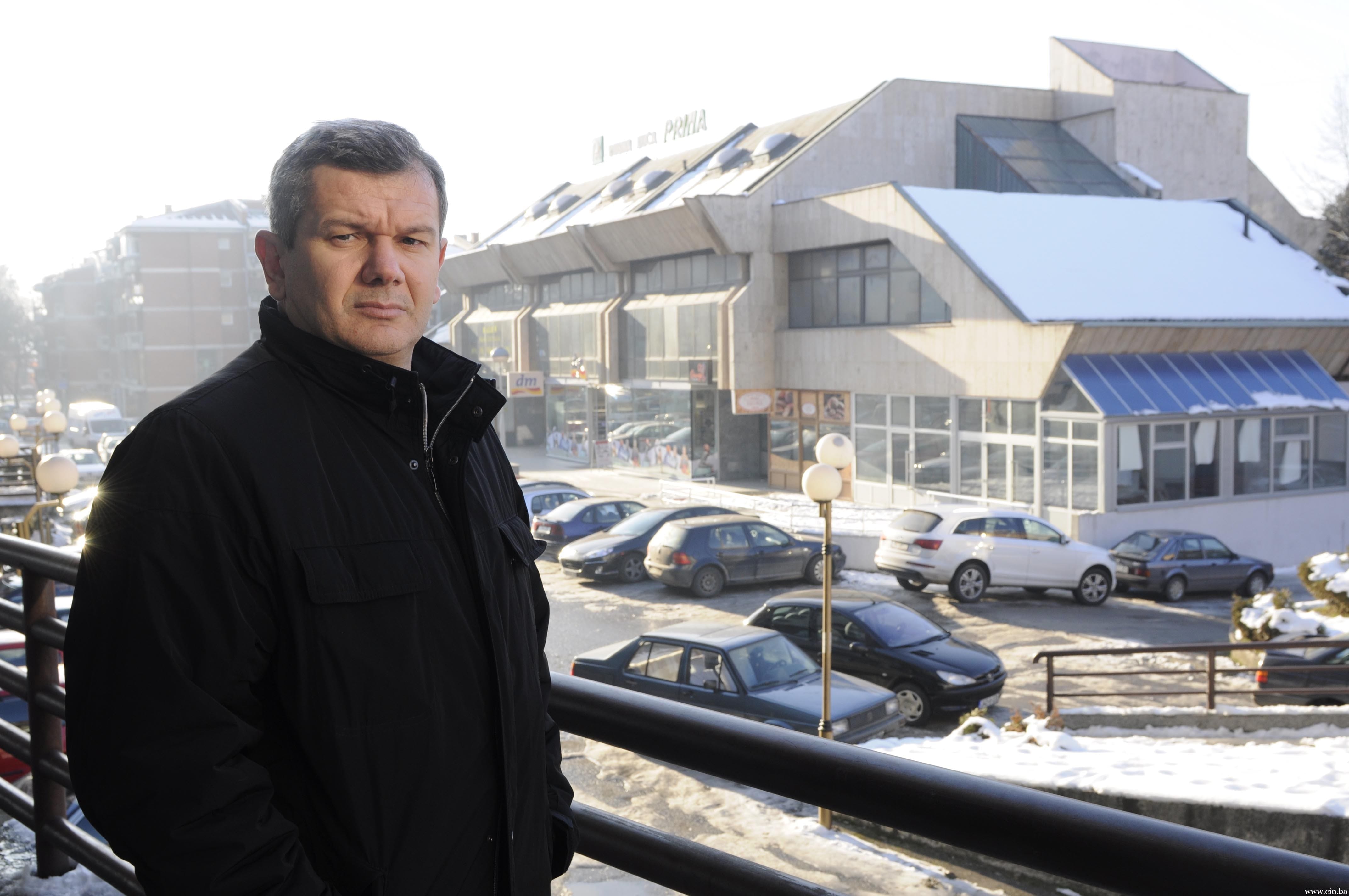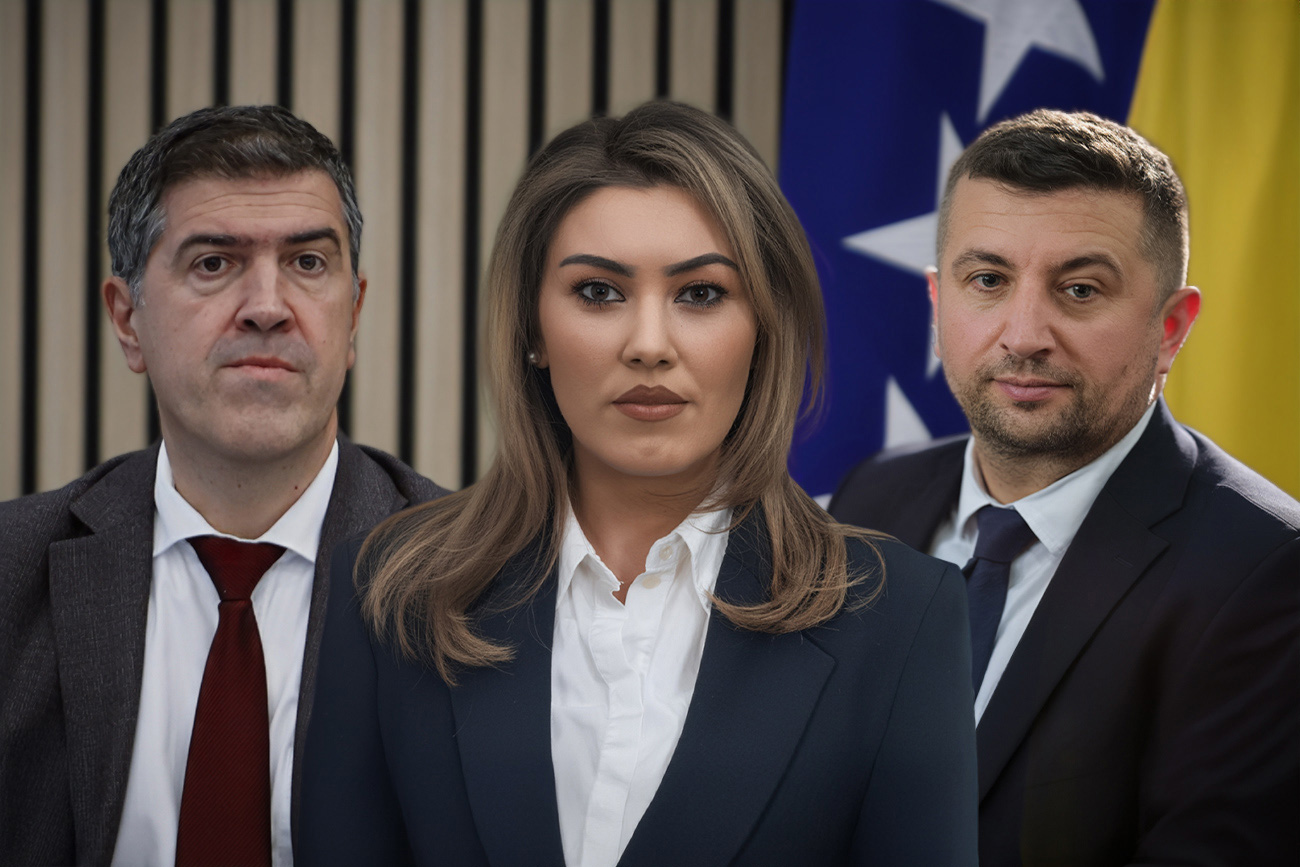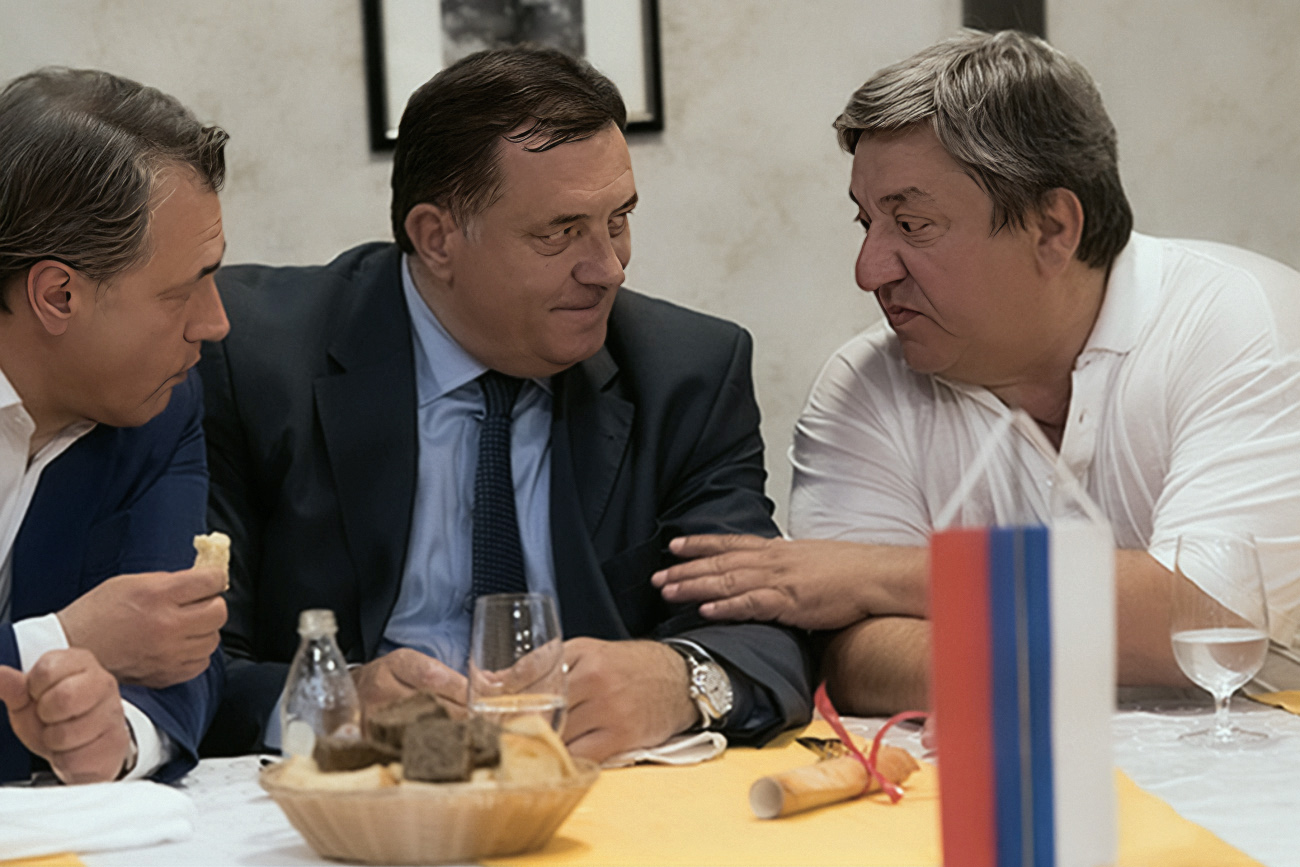The net worth of Republika Srpska (RS) President of the Republika Milorad Dodik’s family has risen by 9.6 million KM over the past four years.
This is the value of the family’s Gradiška produce company Fruit Eco. It was incorporated in 2007 with the minimum required capital of 2,000 KM from the president’s son Igor Dodik and from Mirko Dobrić, the husband of the politician’s cousin. Each contributed 1,000 KM. The company had no assets.
Three-and-a-half years later, the firm’s financial report states that it owns land worth 2.6 million KM, a refrigerator and other assets worth 2.3 million KM, and orchards worth 3.1 million KM. The rest of Fruit Eco’s value is made up of inventory and money owed to the company.
Reporters from the Center for Investigative Reporting in Sarajevo (CIN) have reviewed dozens of land records, auditors’ and financial reports and found that the Fruit Eco owners acquired this wealth due to privileged loans not available to the run-of-the-mill start-ups in Bosnia and Herzegovina (BiH).
The Balkan Investment Bank (BIB) played a key role in the rise of the firm. Thanks to the bank’s loan, Dobrić acquired the agricultural estate on which the company was developed. The estate was used as a lien for the further crediting of Fruit Eco in which BIB also played a pivotal role.
However, Fruit Eco has been working at a loss over the past two years, and its loans have come up for payment.
Buying Land from a Former State Company
The story of the Dodik’s orchard business begins on July 27, 2007, when Dobrić bought an agricultural estate at an auction before the Gradiška municipal court for 1.5 million KM. The estate—located in the village of Gornji Podgradci—was once part of a state-owned company Plantaže that was privatized in 2003. Three years later bad management had driven it into bankruptcy. The debts where paid off through the sale of 1,000 hectares including orchards and various buildings to six businessmen. The real property was undersold, the price in one case reaching just a fifth of its real value.
The auction in which Dobrić bought 255 acres of orchard land was held towards the end of the Plantaže sell-out. The last director of Plantaže, Milovan Ilić, told CIN that the orchard in Gornji Podgradci was among the best in the company because it was covered with ‘over 50 percent of young trees.’
Dobrić ran into difficulties getting money to buy the land. According to the auction’s rules he had to pay into the court’s account within seven days from the moment he was awarded the win. He asked for 30 days, but the court refused. The money was paid within the deadline from the BIB’s accounts. The bank loaned Dobrić 1.5 million KM.
The bank did not want to answer CIN’s question about what guarantees it received for this loan. According to the land records, Dobrić’s estate was mortgaged against the loan, but this lien was entered into the books only in December 2007, four months after the money was paid out.
Even though he had incorporated Fruit Eco with Dodik junior within two months of purchase of the land, Dobrić transferred his estate to the firm only the following year.
According to an estimate made in 2006 and 2007 for Plantaže bankruptcy trustee Dušan Kovačević – the land, orchards and buildings were worth 937,000 KM.
But Dobrić hired another appraiser in the spring of 2008 who estimated the worth of the estate in Gornji Podgradci at 5.7 million KM, or five times more than at the time he took it over. Between the two appraisals no significant investment in the land, buildings or orchards were made.
First the Land, Then the Loans
With the approval of Dodik junior, Dobrić made a non-cash member contribution in the amount of 5.7 million KM which made his share shoot to 99.98 percent, and Dodik’s plummet to 0.02 percent at the beginning of July 2008.
After the transfer of the land in the company, the RS Investment Development Bank (IRB) gave Fruit Eco a 15-year loan for 3 million KM to acquire a 2000-ton refrigerator and expand its orchards. The loan stipulated a three -year grace period to pay off the principal.

Several days after, Dobrić transferred rights to some of his capital to Igor so that they again had equal shares, both worth 2,575,000 KM. The contracts on behalf of Igor, both the one allowing Dobrić to bring in new capital and its later redistribution, were signed by Željko Pepić, a corporate officer for Farmland, a major cattle farm in Nova Topola, Gradiška municipality.
Fruit Eco was the first company in RS to get an agricultural loan of more than 500,000 KM, and the first to get such a loan in the record time of three days. The same day the loan application was submitted, Friday – July 18, 2008, the IRB’s Credit Board and the Credit Board of the IRB’s Shareholder Assembly met. The chair of the latter board at the time was Milorad Dodik. The board decides only loan applications exceeding 500,000 KM. The prime minister was not present at the time the board specifically was deciding about giving money to his son. Then Finance Minister Aleksandar Džombić–the current RS Prime Minister–chaired that session.
The contract was signed on July 21, and the money came through on July 28 via BIB, which arranged the loan and took on the risk of default. This was the second time that BIB took as a lien the same land and orchards in Gornji Podgradci.
In August 2010, during the visit of IRB‘s director Milenko Pavlović to the estate in Gornji Podgradci, Dobrić said that he used the money from the loan to plant new trees, to construct the refrigerator and to finish a watering project.
He also said that the major retailers from neighboring Croatia and Serbia, Konzum and Delta Maxi, were their main clients purchasing their apples and pears. Last year Fruit Eco picked around 1,000 tons of apples, said Dobrić.
According to the company’s financial reports, Fruit Eco’s main source of revenue remains the sale of other fruit producers’ stocks in BiH. According to the report, Fruit Eco sold goods worth 940,000 KM in 2010 that it had purchased for 800,000 KM.
This summer, IRB published a press release on Pavlović’s visit to Fruit Eco and some other companies that received IRB’s loans on the bank’s web page that it titled ‘Successful Investments.’
According to current figures on Fruit Eco’s business, the firm could have trouble paying back its loan. Fruit Eco incurred a 700,000 KM loss over 2009 and 2010, while it owes 900,000 KM to its suppliers – according to company’s financial reports at the end of last year.
The three-year grace period ended at the end of this July And Fruit Eco started paying back the loan according to the IRB’s Press Office. However, CIN has learned from a source who asked not to be named because of the confidential information being disclosed that the company has not started paying the principal of 3 million KM as of Aug. 31.
IRB officials say that the commercial bank carries the burden of default and that it was expected that Fruit Eco would operate at a loss for its first three to four years when it, cannot pick fruit from young trees. CIN reporters tried to talk with Dobrić, but in a telephone conversation he said that he had already discussed this matter with other reporters.
Privileged Loan for Dobrić
Dobrić too is not paying back his 1.5 million KM private loan in accordance with the terms of original contract with BIB. Even though he shared ownership of the land, the obligation to repay the loan remains with him. According to the contract signed with BIB in 2007, Dobrić was to pay back the loan by 2012. However, CIN has learned that as of Sept. 1, he has paid back only 63,000 KM of the principal.
Dobrić was not late with the repayment. He was allowed an extension on paying the loan. Fruit Eco’s founding member and BIB signed annexes to the contract first in April 2008, and then in September 2009. Those retroactively gave Dobrić a grace period of two years, with a freeze on payment of the principal for a year. The loan’s due date was moved from 2012 to 2015.
Apart from this, the BIB also decreased its interest rate from 10.99 to 9 percent.
BIB is majority owned by three Lithuanian companies, while 14.2 percent of the stock is owned by the RS Shares Fund and the RS Restitution Fund, managed by the government-owned IRB. CIN wrote earlier that BIB’s owner is Vladimir Romanov, a Lithuanian of Russian descent. In 2001, he bought the Alumina Factory Birač in Zvornik, which avoided paying taxes for years as it did business through a company registered in the British Virgin Island. He was sued in US federal court on charges of enriching himself through off shore banks and shell companies. The case ended with a settlement in 2007.
At the time when the co-owner of Fruit Eco Dobrić received the BIB loan, the bank’s major client was the RS government , led by Dodik.
In its audit report of BIB for 2007, an independent auditor Deloitte noted that the bank is facing ‘a serious problem of liquidity’ and that it was doing business with high risk because, among other factors, a small number of depositors held the majority of the bank’s deposits. Just one deposit by the RS Ministry of Finances made 42 percent of the bank’s total deposits.
The bank had three executive directors in 2007: Edvinas Navickas from Lithuania and two from RS, Željka Tenžerić and Brane Stupar. Tenžerić said she was in charge of affairs outside of the country, while Stupar said that he was contractually obligated not to speak about individual loans.
Asked by CIN if individuals received loans worth 1.5 million KM, Stupar answered: ‘To physical persons not.’
He was appointed in the second half of 2008, first as acting director and then as IRB director.
CIN reporters could not reach Navickas, the only one of the three still working at the bank.
Answering a general question if it was the bank’s practice to give loans of 1.5 million KM to private persons, the former head of the BIB’s Board of Directors Gordana Rašeta-Blažić says that when a bank is deciding on a loan, there has to be a mortgage, or a guarantee or some other things.
‘There is no possibility that it can be done after the fact.’ She represented Romanov on the board until she left BiB in 2006.
After CIN’s reporter said that the loan in question belonged to Mirko Dobrić, Rašeta-Blažić said that she was the wrong person to talk about this loan because ‘Dodik is my son-in-law.’
She said it was natural that the private bank owners ‘played on all possible politicians, judges, all who are current and who can bring them many clients.’ A bank, she said, ‘lives off its clients.”







